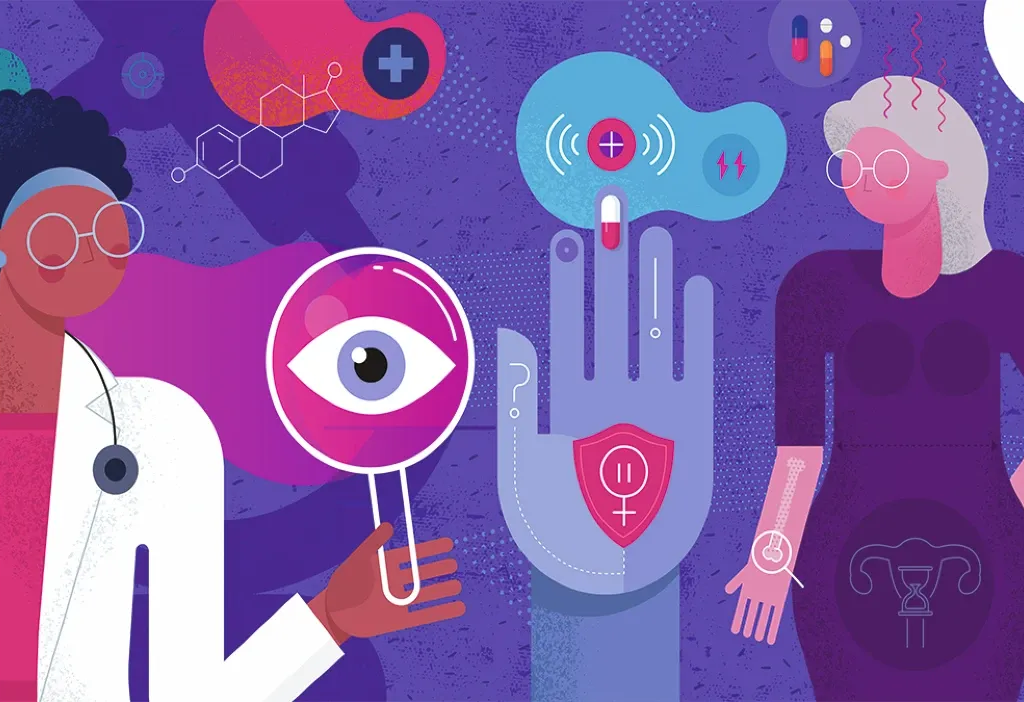FemTech & digital maternal health in pregnancy are reshaping how women experience prenatal care. With innovative apps, AI tools, and wearable tech, mothers now have access to safer, more informed pregnancy journeys than ever before.
1. FemTech & Digital Maternal Health in Pregnancy: What It Means
FemTech refers to technology focused on women’s health, especially during pregnancy. When combined with digital maternal health, it includes apps, wearables, and remote care platforms that help women track symptoms, fetal health, and access advice anytime.
These tools aren’t just about convenience—they’re helping reduce risks and improve maternal outcomes globally.

2. Smart Wearables Support Safer Pregnancies:
Devices like smartwatches and biosensors are changing the game. They monitor vital signs such as blood pressure, fetal heart rate, and even detect early signs of labor.
Wearables like the Ava bracelet and Bloomlife contraction tracker provide real-time insights. This empowers women and their doctors to make proactive choices throughout the pregnancy.
3. Digital Tools in Prenatal Care Provide Personalized Insights:
In prenatal, Mobile apps like Ovia Pregnancy, Babyscripts, and Maven Clinic deliver daily tips, health tracking, and reminders. These platforms are designed to make prenatal education more accessible—even for first-time moms.
Since the advice is personalized based on user input, it feels more like guidance from a midwife than a generic blog article.

4. FemTech Pregnancy Technology Helps Bridge Healthcare Gaps:
For expectant mothers in remote or underserved areas, FemTech & digital maternal health tools reduce the need for frequent hospital visits.
One example is the Safe Delivery App—used in sub-Saharan Africa—which helps midwives and mothers with life-saving pregnancy protocols. This tool has reduced neonatal deaths by 50% in some regions.

5. Privacy Concerns Around Maternal Health Tracking Apps:
While tech brings benefits, it also raises concerns—especially around data privacy in femtech. A recent study found that over 60% of pregnancy apps share user data with advertisers or third parties.
Expectant mothers must review app permissions and choose tools compliant with GDPR or HIPAA standards. This ensures sensitive health information stays private.
6. Promoting Equity in FemTech Maternal Health Solutions:
The digital divide remains a problem. Most FemTech tools are developed for wealthier, urban users. This leaves behind rural communities and low-income families.
True equity means designing tools that work offline, are affordable, and include multilingual support. Organizations like UNICEF are already investing in these inclusive maternal tech solutions.
7. Future of Digital Maternal Health: What’s Next?
The future includes AI-powered diagnostics, virtual OB-GYNs, and fully integrated platforms combining wearables with telemedicine.
Global funding in FemTech is expected to surpass $1.3 billion by 2026, with growing demand for safer, smarter pregnancy care. This momentum is shaping a more empowered future for maternal health worldwide.
Conclusion:
FemTech & digital maternal health in pregnancy are changing how women experience care before birth. From tracking symptoms to getting expert advice at home, these tools help make pregnancy safer and less stressful. As more moms use apps and smart devices, they feel more supported and informed. Choosing the right technology can make a big difference for both mom and baby.
FAQS:
What does FemTech stand for?
FemTech stands for “female technology” and refers to software, products, and services that use technology to support women’s health, especially in areas like fertility, pregnancy, and reproductive care.
What is the FemTech category?
The FemTech category includes mobile apps, wearable devices, telehealth services, and digital tools that address menstrual health, pregnancy care, fertility tracking, menopause, and general female wellness.
Why is FemTech important?
FemTech is important because it helps close gaps in women’s healthcare by offering accessible, personalized, and data-driven solutions that improve health outcomes and empower women to manage their well-being.
What is the McKinsey report about FemTech?
The McKinsey report on FemTech highlights the rapid growth of the sector, its potential to reach over $1 trillion in value, and the urgent need for more investment, innovation, and inclusivity in women’s digital health solutions.
External Resources:
World Health Organization – Maternal Health Overview
https://www.who.int/health-topics/maternal-health
NIH – Technology for Maternal and Child Health
https://www.ncbi.nlm.nih.gov/pmc/articles/PMC7895212

Empowering parents to raise happy, confident kids. Get practical parenting tips and advice on our blog, Smart Parent Guides.
